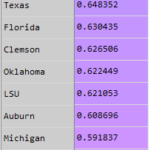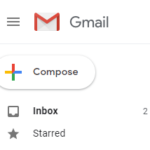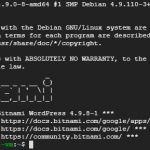
In earlier posts over 5 years ago, I detailed my journey into data science, which started with formal education and training, where I enrolled in a Masters of Science (MSc) program to obtain a graduate degree in Data Science. During my time as an MSc student, I struggled in the computer science courses, as my classmates already had computer science (CS) degrees as undergraduates, and many already had industry experience in Information Technology (IT). Despite my struggles, I endured and spent a lot of time in my CS courses, and managed to complete and do well on most of my graduate classes. At the end of the day, I earned an MSc degree, just like my classmates, so I was very happy indeed with my accomplishments at my age.
Most of my classmates couldn’t find jobs as data analysts or data scientists, so many of them ended up in software engineering jobs. And very few found internships as data analysts or data scientists. I was not able to obtain an internship in data science, so I ended up doing data science project work at the school instead, and that gave me the needed experience to complete data science projects. But despite earning my data science graduate degree, I was not able to find a job as a data scientist initially. I had submitted job applications to over 200 companies, but only landed a handful of interviews, and didn’t receive a single offer.
I was still determined to forge forward with my quest to become a data scientist, as I was a newly minted data science graduate, but needed to get the necessary industry experience to make a career as a data scientist. Fortunately, I was able to partner with a colleague, and we formed a data science startup company. This experience with being one of the primary data scientists in this startup gave me valuable skills to solve business problems for clients, utilizing my data science skills, techniques, and processes.
Then after a year with this startup, I received an interview request from a large organization (they were one of the 200 applications I submitted while job hunting when grad school finished), and they were intrigued with my previous clinical research career, and needed help from a data scientist, as their organization was just getting into data science to solve business problems. The interview went well, and an offer was made, and I promptly left my job at the startup, and started my new job as an enterprise data scientist. At this new position, I thrived and got promoted twice, and after just 2 and a half years at this organization, I am now leading the AI/ML technical initiatives in my large department as a senior data scientist and AI/ML technical lead. I will detail how to become an AI/ML leader in my new data science website, Enterprise Data Science.
So what can you learn from my experiences? First and foremost, if you want to become a data scientist, don’t give up- look for alternative data science opportunities if your job hunt is not successful. In my case, even after 200 job applications and a handful of interviews, I knew I had to stay the course and founded a data science startup company, so that I could get the needed data scientist experiences and skills. My mentor kept telling me about the importance of your first job coming out of school, as that job would set your career path as an IT professional. I knew I wanted to be a data scientist, so I persevered and kept on the data science path. If you don’t get the needed data scientist positions after formal training, then your path towards becoming a data scientist becomes very difficult, especially if you end up in a different domain, such as software engineering.
Ideally, your training program would have helped you obtain a data science internship, and this internship leads to a permanent data scientist position, but these data science internships are rare, and they get filled immediately. So even if you don’t get an internship, do other data science projects at your school, and they may even have industry-sponsored projects for you to gain valuable data science experience.
But keep on applying to data science jobs, as it only takes one offer to get you into this wonderful domain as a data scientist. Even when I was in the startup, I kept applying, and I ended up getting my data scientist position, albeit a year later after my formal training ended. Don’t give up- you make your own opportunities by staying the course, building your data science skills, and applying to data science positions.
Additionally, use your previous experiences in other domains, to let potential employers know that you have skills and knowledge that are transferrable to every job. In my case, I was a clinical researcher and was highly skilled at communication (I was a psychiatrist). It was this previous experience that grabbed the attention of the hiring manager that separated me from the thousands of applications for these data scientist positions.
Finally, get a mentor who is a senior data scientist. They will be your coach and will be able to guide you in this transition from formal data science training into a data scientist position in industry. Without a mentor, your chances for success in obtaining a data scientist position are greatly diminished.






